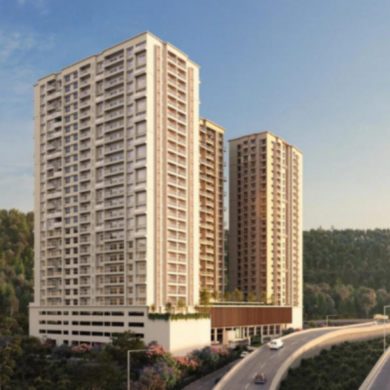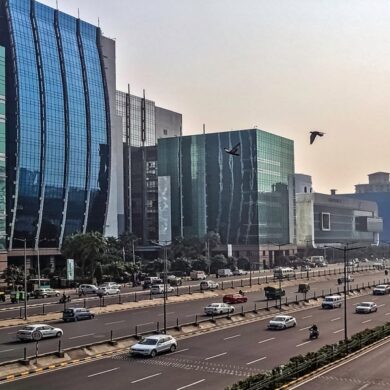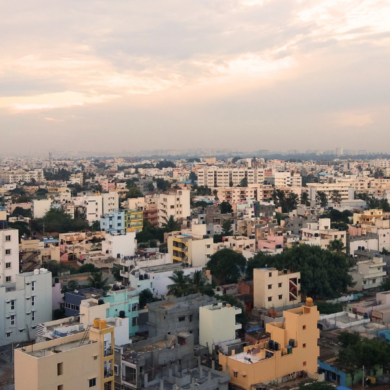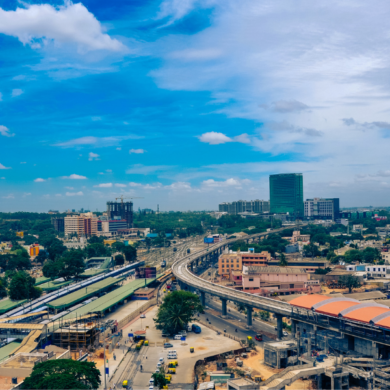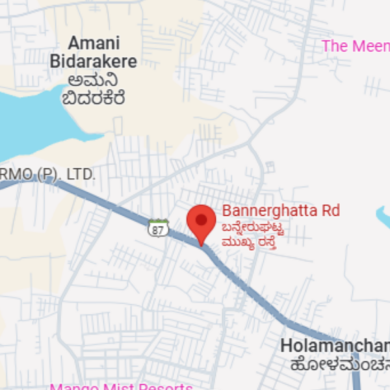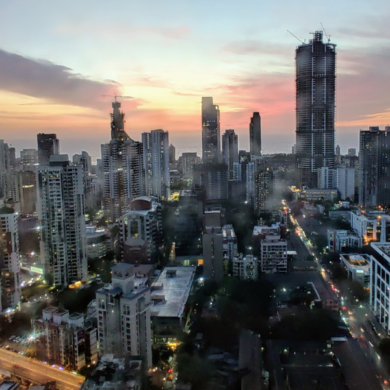
Discover key details about stamp duty and registration charges in Gujarat in this blog, including the latest Gujarat property stamp duty rates, exemptions, online payment options, and important deadlines.
Table of Contents
What is Stamp Duty?
Stamp Duty is a tax levied on legal documents, typically related to property transfer. This tax has a long history, dating back to the British colonial era when it was introduced as a means of generating revenue for the government. It remains an essential component of property transactions, ensuring that legal documentation is valid and enforceable.
The primary purpose of Stamp Duty is to serve as a legal acknowledgement of the property transaction. The revenue generated from Stamp Duty in Gujarat is utilised for various public welfare projects, infrastructure development, and maintaining the state’s financial health. It also plays a crucial role in reducing fraud by providing a legal trail of property ownership.
Current Stamp Duty Rates in Gujarat 2024
In Gujarat, stamp duty rates vary based on the type of property being transacted. Typically, the rates are as follows:
- Residential Properties: Stamp Duty is around 4.9% of the property’s market value
- Commercial Properties: The rate is usually higher, reflecting the commercial value and utility of the property, often around 5% of the market value
- Agricultural Land: stamp duty for agricultural land is usually lower, around 3%, as these transactions often support farming and related activities
Stamp duty rates in Gujarat also vary depending on whether the property is in an urban or rural area. Urban properties generally attract higher duty, due to higher property values and better access to amenities. In contrast, rural properties have slightly lower rates, reflecting the lower market value of land in these regions.
Recent Changes and Updates (As on August 2024)
Many government policies directly influence stamp duty in Gujarat. For example, the state has introduced concessions for women buyers, first-time property owners, and those purchasing affordable housing.
How Stamp Duty is Calculated in Gujarat?
Stamp duty in Gujarat is calculated based on two values: the property’s market value or the transaction value stated in the sale deed. This ensures that the tax is proportionate to the property’s worth, preventing undervaluation and revenue loss.
Factors Affecting Stamp Duty
Many factors influence the calculation of stamp duty in Gujarat:
- Market Value: The government periodically updates the market value of properties, which serves as the basis for stamp duty calculations
- Transaction Value: The value the buyer and seller agree upon, as mentioned in the sale deed
- Property Type: Residential, commercial, and agricultural properties attract different rates
- Location: Urban properties generally have higher rates compared to rural properties
Exemptions and Concessions
Gujarat provides many exemptions and concessions to specific categories of buyers and property types. For instance, women buyers often benefit from reduced Stamp Duty rates, as part of initiatives to promote female property ownership. Concessions may also apply to first-time homebuyers, buyers of affordable housing units, and those purchasing property in designated rural or underdeveloped areas.
Registration Charges in Gujarat 2024
In Gujarat, registration charges are a crucial part of the property buying process, serving as a legal fee for officially recording the transfer of ownership. These charges are mandatory and calculated based on the property’s market value, ensuring the transaction is legally recognized and protected under state law. Understanding these charges is essential for anyone looking to invest in real estate in Gujarat.
What are Registration Charges?
Registration charges are fees levied by the state government to officially record the ownership of a property in the buyer’s name. This fee is paid when registering the sale deed with the local sub-registrar’s office. The primary purpose of registration charges is to legalise the transfer of property and maintain official record of ownership, which is essential for establishing legal rights over the property.
Current Registration Charges in Gujarat 2024
In Gujarat, the standard registration charges are calculated as a percentage of the property’s value. As of the latest regulations, the registration charges in Gujarat are 1% of the property’s market value or the transaction value, whichever is higher. This rate applies uniformly across different properties, including residential, commercial, and agricultural.
While the standard rate is generally applicable, there may be specific cases where these could vary:
- Government-concessioned Properties: Certain government-subsidised properties may attract lower registration charges
- Affordable Housing: Projects designated as affordable housing might benefit from reduced registration charges as part of government initiatives to promote housing for all
- Properties Transferred Amongst Family Members: In cases where the property is transferred between close relatives, such as through a gift deed, the charges may differ or be reduced.
How Registration Charges are Calculated in Gujarat?
Registration charges in Gujarat are calculated based on the higher of the two values: market value or transaction value of the property. The steps are as follows:
- Determine the Market Value: Similar to stamp duty, the market value is assessed using government-issued jantri rates
- Identify the Transaction Value: This is the value agreed upon by the buyer and seller as stated in the sale deed
- Apply the Standard Rate: The registration charges, which are 1% of the higher value between the market and transaction value, are then calculated
Examples to Illustrate Typical Scenarios
- Residential Property in an Urban Area
- Market Value: ₹50 lakhs
- Transaction Value: ₹48 lakhs
- Registration Charges: 1% of ₹50 lakhs = ₹50,000
- Commercial Property in Rural Area
- Market Value: ₹30 lakhs
- Transaction Value: ₹32 lakhs
- Registration Charges: 1% of ₹32 lakhs = ₹32,000
- Agricultural Land
- Market Value: ₹10 lakhs
- Transaction Value: ₹12 lakhs
- Registration Charges: 1% of ₹12 lakhs = ₹12,000
Comparison with Other States
Stamp Duty and Registration Charges Across Major States
When comparing stamp duty and registration charges across major states in India, Gujarat generally has competitive rates, but there are notable differences:
- Maharashtra: Stamp duty in Maharashtra is around 5% in urban areas like Mumbai and Pune, with an additional surcharge of 1% for properties within municipal limits. Registration charges are 1% of the property’s value, similar to Gujarat.
- Karnataka: Stamp duty in Karnataka varies between 3% & 5% based on the property’s value, with higher rates applied to more expensive properties. Registration charges are around 1% of the property’s market value.
- Tamil Nadu: Tamil Nadu imposes a Stamp Duty of approx. 7% for property transactions, one of the highest in the country. Registration charges in Tamil Nadu are about 1% of the property’s value, but they are capped at ₹4 lakh.
- Delhi: Stamp Duty in Delhi is 4% for women buyers and 6% for men, with registration charges set at 1% of the property’s value.
Gujarat’s rates, around 4.9% for stamp duty and 1% for registration charges, are relatively moderate compared to states like Tamil Nadu but higher than some regions like Karnataka for specific property values.
Reasons for Differences
- Economic Factors: The variation in stamp duty and registration charges across states is often influenced by the states’ economic conditions. States with higher real estate demand, such as Maharashtra and Tamil Nadu, tend to levy higher duties to capitalise on their booming markets. In contrast, some states may have lower rates to encourage property transactions.
- State Policies: State government policies also play a crucial role in determining these charges. Some states offer concessions or reduced rates to promote specific policies, such as affordable housing or women’s property ownership. For instance, Maharashtra offers a lower stamp duty rate for women buyers, and Karnataka provides rebates for affordable housing projects.
Impact on Property Buyers
The differences in stamp duty and registration charges across states significantly impact property buying decisions. Higher duties and charges increase the overall cost of property acquisition, which can deter buyers or push them to consider alternative locations with lower costs.
Procedure for Paying Stamp Duty and Registration Charges in Gujarat
Step-by-Step Guide
Online Payment:
- Step 1: Visit the official government portal – i.e. the Gujarat Revenue Department‘s website
- Step 2: Register or log in using your credentials
- Step 3: Select the option for stamp duty and registration charges payment
- Step 4: Enter the required details, including property specifics and transaction value
- Step 5: Upload the necessary documents and verify the information
- Step 6: Pay through online options such as netbanking, debit / credit cards, or UPI
- Step 7: Download the payment receipt and acknowledgement
Offline Payment:
- Step 1: Visit the local sub-registrar’s office
- Step 2: Fill up the required forms for stamp duty and registration charges
- Step 3: Submit the necessary documents, including the sale deed and identification proofs
- Step 4: Pay the charges at the designated counter, either by cash, demand draft, or cheque
- Step 5: Collect the payment receipt and acknowledgement
Required Documents and Verification Process
- Sale deed or agreement of sale
- Property documents (title deed, encumbrance certificate)
- Identification proofs (Aadhaar card, PAN card)
- Address proof (electricity bill, passport, etc.)
- Power of attorney (if applicable)
- Recent passport-sized photographs of the buyer and seller
Government Portals and Services
Gujarat has official portals and services designed to facilitate the payment of stamp duty and registration charges:
- Gujarat Revenue Department Website: The primary portal for online payment of stamp duty and registration charges
- IGRS Gujarat: Integrated Grievance Redressal System, where users can track the status of their registration and payment
- e-Dhara: An online platform for land record management that is also linked to stamp duty payment services
Timeline and Process Flow
The typical timeline for completing the payment of stamp duty and registration charges in Gujarat is as follows:
- Day 1: Submit the sale deed for registration
- Days 2-3: Verification of documents and payment processing
- Days 4-5: Issuance of payment receipt and acknowledgement of registration
- Days 6-7: The registered sale deed is handed over to the buyer after completing all formalities
Common Mistakes and How to Avoid Them
- Incorrect entry of property details or transaction value
- Failure to upload all required documents
- Delayed payment leads to penalties
Tips for a Smooth Process
- Double-check all entered information before submitting
- Ensure all documents are up-to-date and accurately reflect the property details
- Complete the payment within the stipulated time frame to avoid any late fees or legal complications
Legal Implications of Non-Payment
Failure to pay stamp duty and registration charges in Gujarat can lead to serious legal consequences. The transaction may be invalid, and the property may not be legally transferred to the buyer. The government may impose penalties, including fines and interest on the unpaid amount, and could initiate legal proceedings to recover the dues. Non-payment also jeopardises the buyer’s legal rights to the property, potentially leading to disputes and complications in future transactions.
Case Studies
Example 1: Successful Property Transaction in Ahmedabad
Mr. Patel, a first-time homebuyer in Ahmedabad, decided to purchase a residential property in an urban area. He opted for online payment of stamp duty and registration charges through the Gujarat Revenue Department’s portal. With the help of a legal advisor, Mr. Patel ensured that all documents were correctly filled up and uploaded.
The entire process was completed smoothly within 5 days, with no delays or additional costs. This case highlights the importance of understanding the online payment process and seeking professional assistance to avoid errors. Mr. Patel’s proactive approach and attention to detail allowed him to complete the transaction efficiently, securing his property without legal issues.
Example 2: Challenges in a Rural Property Purchase
Mrs. Desai, an NRI, aimed to purchase a commercial property in a large town in Gujarat. Due to her unfamiliarity with the local regulations and reliance on an inexperienced real estate consultant, she faced many challenges, including delays in document verification and incorrect calculation of stamp duty. Additionally, Mrs. Desai encountered issues with the offline payment method, which led to a missed deadline and a penalty.
Eventually, she had to engage a more knowledgeable legal consultant who guided her through the process, but only after incurring additional costs and time. This example underscores the risks associated with inadequate research and the importance of using reliable professionals for property transactions, especially for NRIs and first-time buyers.
Conclusion
Understanding stamp duty and registration charges is essential for property transactions in Gujarat, as these charges vary by property type and location. Managing the process efficiently, primarily through online platforms, requires attention to detail and proper documentation.
You can avoid common pitfalls and potential penalties by seeking legal assistance and conducting thorough research. To ensure a smooth transaction, you can double-check all details, opt for online payments when possible, and seek professional advice – particularly if unfamiliar with the process or purchasing in rural areas or as an NRI.
FAQs
1. What is the current stamp duty rate for residential properties in Gujarat?
The current stamp duty rate for residential properties in Gujarat is 4.9% of the property's market value or transaction value, whichever is higher.
2. How are stamp duty and registration charges calculated?
Stamp duty and registration charges in Gujarat are calculated by multiplying 4.9% and 1% respectively, with the higher of the market value or transaction value of the property.
3. Are there any exemptions or concessions on stamp duty in Gujarat?
Yes, there are exemptions or concessions on stamp duty in Gujarat, for certain categories such as women buyers, first-time homebuyers, and affordable housing.
4. Can stamp duty be paid online in Gujarat?
Yes, stamp duty can be paid online in Gujarat, on the Gujarat Revenue Department's official portal.
5. What documents are required for paying stamp duty and registration charges?
Documents required for paying stamp duty and registration charges in Gujarat are sale deed or agreement, property title documents, identification proof (Aadhaar, PAN card), address proof, and power of attorney if applicable.
6. Is stamp duty applicable on property gifted or inherited in Gujarat?
Yes, stamp duty is applicable on property gifted in Gujarat, and rates may vary. Inherited property in Gujarat is exempt from stamp duty, though registration charges may still apply.
7. What happens if I delay or fail to pay stamp duty and registration charges?
If you delay or fail to pay stamp duty and registration charges, it can result in penalties, including fines and interest. The property transaction may be considered invalid, and legal action may be initiated by the authorities.
8. How long does it take to complete the registration process after paying the charges?
After paying stamp duty and registration charges in Gujarat, the registration process takes 5-7 days to complete, depending on the documentation and verification process.
9. Can I claim a refund on stamp duty if a property deal is cancelled?
Yes, you can claim a refund on stamp duty if a property deal is cancelled, but it is subject to specific conditions and timelines set by the Gujarat government.
10. How does stamp duty in Gujarat compare to other states like Maharashtra or Karnataka?
Stamp duty in Gujarat, at around 4.9%, is generally competitive; but lower than in states like Tamil Nadu (7%) and slightly higher than that in Karnataka (3-5%).
11. Are there different stamp duty rates for agricultural land in Gujarat?
Yes, there are different stamp duty rates for agricultural land in Gujarat, i.e. around 3% which is lower than residential and commercial properties.
12. Do NRI buyers have to pay additional stamp duty or registration charges in Gujarat?
No, NRI buyers do not have to pay additional stamp duty or registration charges in Gujarat, but they need to comply with certain legal requirements and provide extra documentation.
